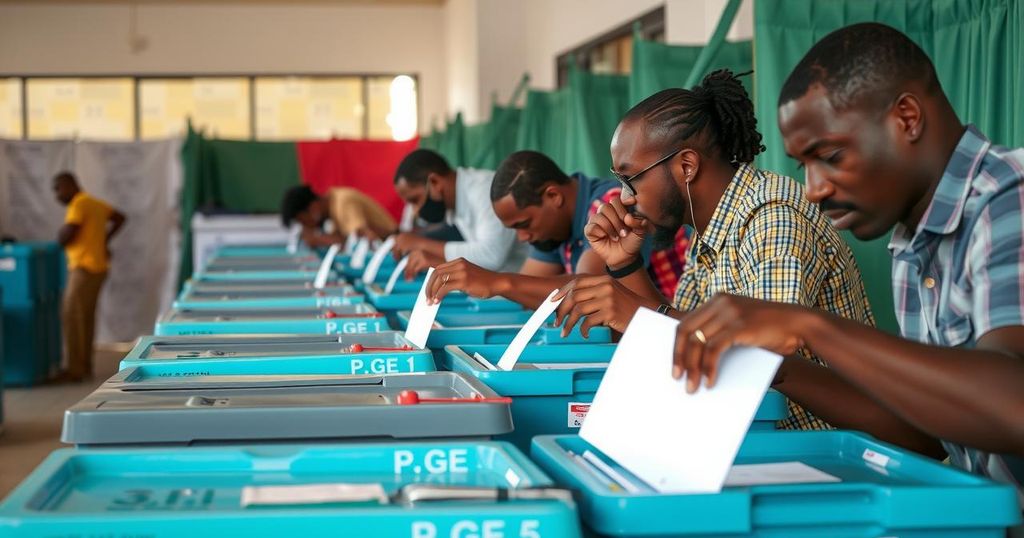Ghana’s General Election: A Crucial Test for Democracy Amid Economic Struggles
Ghana’s general election has begun, with 18.7 million voters registered. Economic crises have left citizens disillusioned with the main candidates, raising concerns about the country’s democratic integrity amidst regional instability.
On Saturday, polls commenced for the general election in Ghana, a critical moment for the nation’s democratic processes amid ongoing economic turmoil. Approximately 18.7 million citizens are eligible to cast their votes in the presidential and legislative elections. However, both leading candidates have been criticized for offering limited prospects for significant change. Once hailed as a beacon of democracy within West Africa, Ghana is currently grappling with severe economic challenges, including soaring inflation and high unemployment rates.
Ghana has a storied history as a stable democracy in West Africa, frequently serving as a model for electoral governance in the region. Nevertheless, recent years have seen the nation endure a deep economic crisis, characterized by escalating inflation and a dramatic decrease in job availability. This election is particularly significant as it occurs against a backdrop of heightened insecurity in neighboring countries, where extremist violence and political instability have become prevalent. The outcome of this election could be pivotal, influencing not only national stability but also the broader democratic landscape in West Africa.
In conclusion, the commencement of Ghana’s general election serves as both a challenge and an opportunity for the nation’s democracy amidst dire economic conditions. With millions of registered voters and a landscape marked by limited options for political change, the upcoming days will be crucial in determining the future direction of Ghana. Observers will watch closely to ascertain whether the election will reaffirm Ghana’s democratic credentials or exacerbate existing tensions.
Original Source: abcnews.go.com




Post Comment